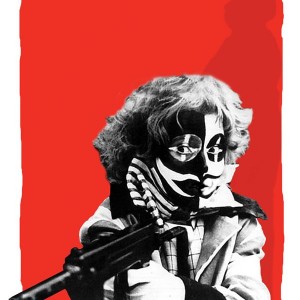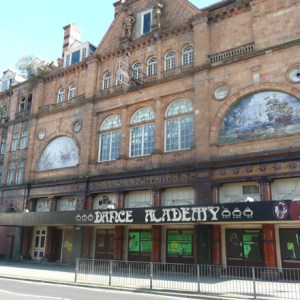TEENAGE KICKS AT PLYMOUTH DRUM THEATRE
 Rebellion!
Rebellion!
That’s the word that we’re told to associate with our teenage years. It’s time where we shouldn’t just accept the world we find ourselves in but instead question who you are and where you fit in the scheme of things. The young cast of Teenage Riot take rebellion a step further. They may not know what exactly they want to be . . . but they know they don’t want to be like the adults who dominate their lives . . . so they riot against the inevitability of that existence.
247 spoke to director, Alexander Devriendt, about the show’s second engagement with The Drum theatre in Plymouth, and where he felt the readership of 247 could and should position themselves in terms of the performance.
I do see the difficulty for an audience who are principally in their twenties. The show makes a very clear division between being a teenager and being an adult and this age group doesn’t exactly fit into either camp.
But you still feel there’s something for them to engage with if they come and see the show?
Oh definitely, the thing to bear in mind initially is, although Teenage Riot is performed by teenagers, the play is very definitely aimed at the adults in the audience. It’s an intervention to force them to look at themselves and their lives. At the same time, however, I believe that it puts you in a very privileged position to understand the themes and content if you find yourself part of the in-between generation.
In what way?
It enables you to take on the role of the negotiator. You may no longer feel as frustrated or constrained as you did when you were a teenager but you have not yet become that thing that you felt the need to rebel against at that stage in your life. At this point, you have a responsibility to both remember the frustrations you felt as a child and also to not repeat the mistakes of your parents.
You’d see it as quite a powerful stage in a person’s life cycle then?
Yes, you certainly no longer wish to be a teenager because now you’re free of the frustrations and limitations that were placed on you in your youth. At the same time, however, you hopefully are still willing to consider where you were coming from a few years before. In this way, it’s possible to bridge the gap between the two opposing ages.
Throughout the piece, much of the action is set with the teenagers being filmed within a box but, despite using this as a theatrical device, there’s a sense that the audience isn’t supposed to feel that it is the younger generation that is imprisoned.
No, they are certainly being constrained and held back by the structures in their lives but as one of the characters says towards the end. “You aren’t an example to me, I see you as a warning. You’re locked inside a cage and what beats me is that you don’t even seem to want to get out of it.” This is a very basic struggle between the generations. Some audiences have seen it and suggested that it saying something about the structure and restrictions of the families in the UK but I think it’s much more basic and universal than that. It’s about knowing who you are and retaining that sense of who you are through whatever stage in your life you find yourself. One girl reflects on this and says ‘I hope that when I’m 84, I’ll be as angry as I am now, being 14.’ That’s the challenge to your readership during their journey from one age to the other.
So if you’d like to become part of the revolution then get along to The Drum between the dates of 12th April and 16th April 2011.






